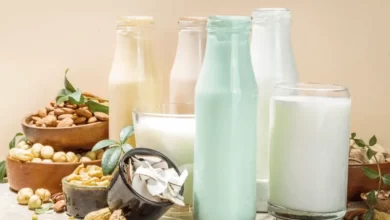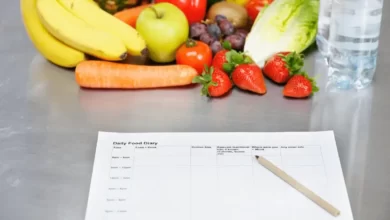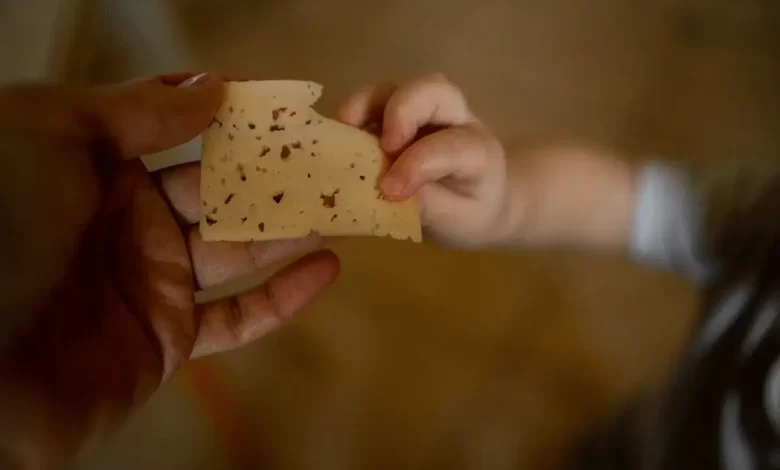
Suppose you want to give your baby the best types of cheese for the baby that are safe for his health. And which will help him grow and give his body vitamins and minerals. All you have to do is you need to read the next article by ListingBest.com.
Mothers are always concerned about what their child eats so they can raise him safely and healthily. And even though a baby depends on breast milk or formula for the first few months of life. So The doctor will tell the mother when to start giving the baby other foods to help him grow. But in today’s article, we’ll discuss which types are the best and most helpful for the child. So stay with us.
When does a baby take the cheese?
Cheese has a small amount of fat, but it also has important vitamins and minerals. Because of this, mothers look for the right time to give their babies cheese so they can get the most out of it.
Even though it is ultimately up to the specialist doctor to decide whether or not the baby can eat cheese, some medical opinions say the baby could eat cheese as early as the sixth month.
Some doctors say that the mother has to wait until the eighth or ninth month before she can give her child cheese. Because cheese is high in protein, it may be hard for a child’s stomach to break it down and absorb it.
Some babies are also hypersensitive because they have problems with dairy products.
It’s important to know what goes into making cheese. And it would help if you didn’t give your child only cheese made from pasteurized milk. So it doesn’t get sick from bacteria. It’s also best if the cheese doesn’t have a lot of sodium.
So, to keep your baby safe, you should wait until the end of the ninth month or the end of the first year. To give him different cheeses to digest and get the nutrients from.
It is best to keep an eye on your child’s reaction to dairy products and stop it right away if it happens.
How to serve cheese to a baby
When giving your child cheese for the first time, you can try one of the following recipes:
- Before giving the child vegetables or eggs, melt some cheddar or mozzarella cheese and add a little more.
- Cut the cheese into thin slices so the child can swallow it more easily.
- Put the cheese pieces cooked on the soft bread and cut them into small pieces.
- If you mash the cottage cheese and give it to your child, it will be easier for them to swallow.
The best cheese for baby
Even though dairy products have a lot of proteins, as we’ve already said, they also have a lot of proteins, minerals, and important vitamins, making them a good meal for your baby when the doctor says it’s okay. In the next few points, we’ll talk about the top types of cheese that are safe for babies.
10: Cottage cheese
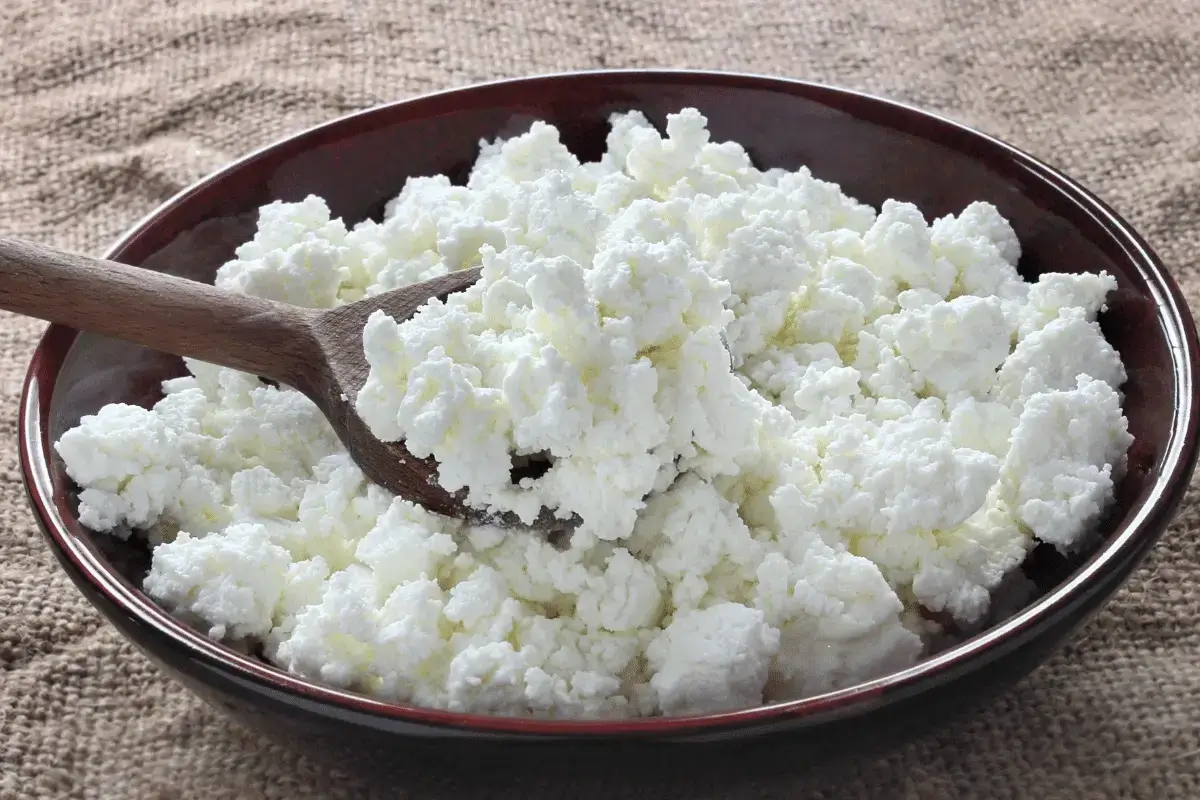
It is one of the best places to get vitamin B12, one of the best vitamins for brain development. Also, it has a lot of calcium, which is good for bones, just like other dairy products.
It also has a lot of protein in it. You can give it to your child as a meal, but you should talk to a doctor first.
9: Processed cheese
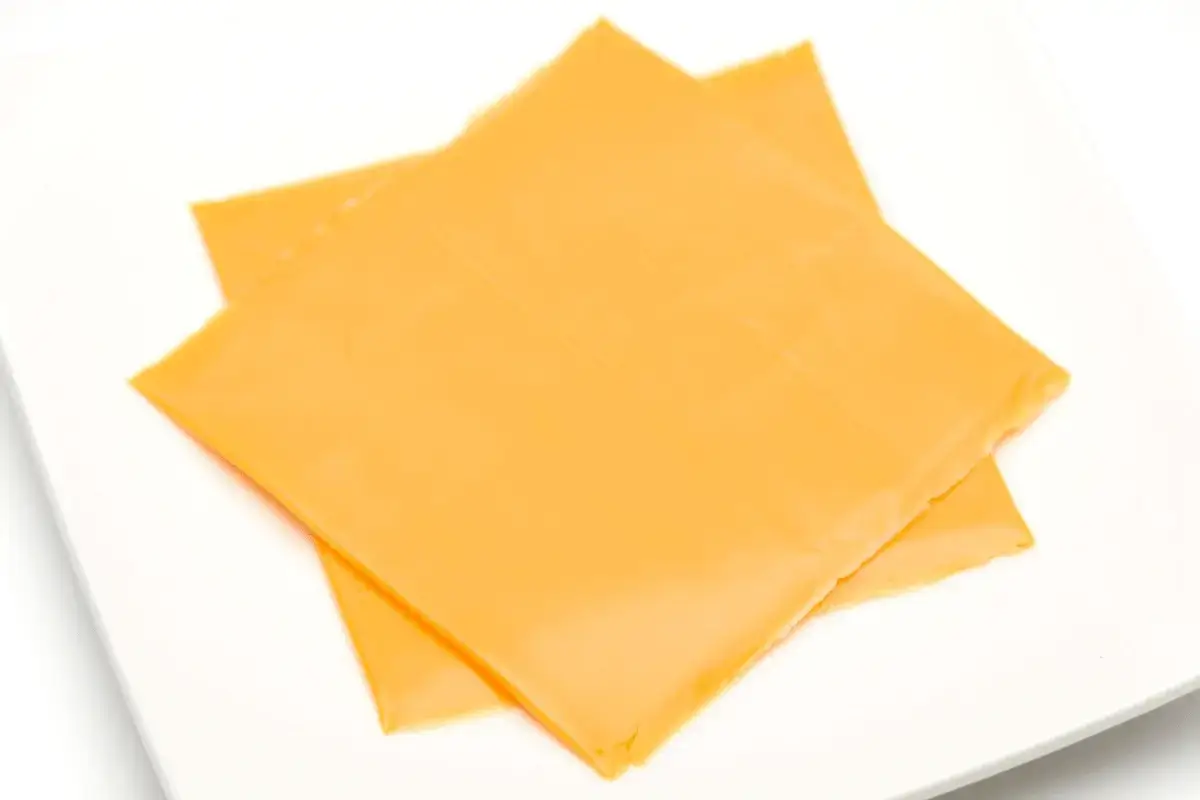
One of the best kinds of cheese you can give your baby. It has a lot of calcium, which helps protect your child’s bones and keep them from becoming curved.
It has vitamin A in it, which is one of the most important vitamins for improving vision. And it makes the child healthier because it has vitamin B in it.
It also has vitamin D, which is an important protein for muscles.
8: Cheddar cheese
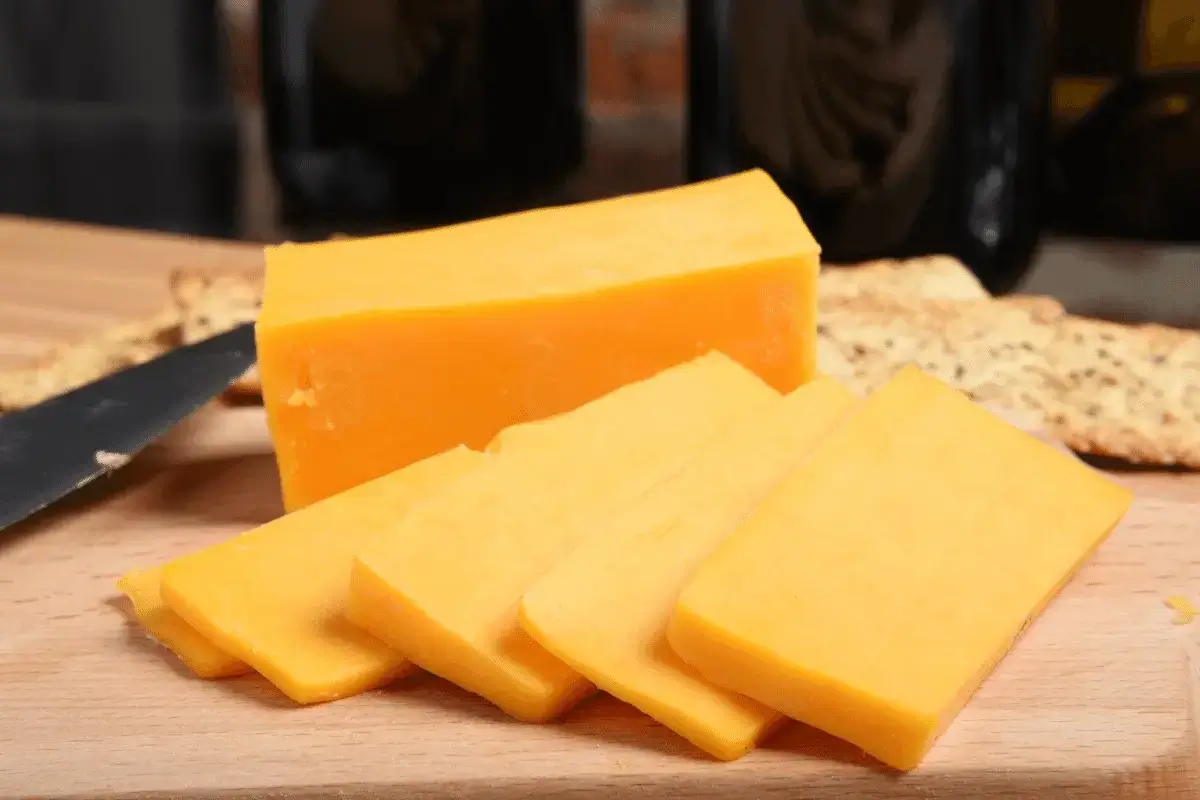
Cheddar cheese is one of the best and most nutritious kinds of cheese. It has saturated fats, iron, protein, and vitamin A. And also, it is easy for the baby to chew on.
One slice is all he needs to get the nutrients he needs. You can make thin squares out of it and give them to your child.
7: Quality cheese
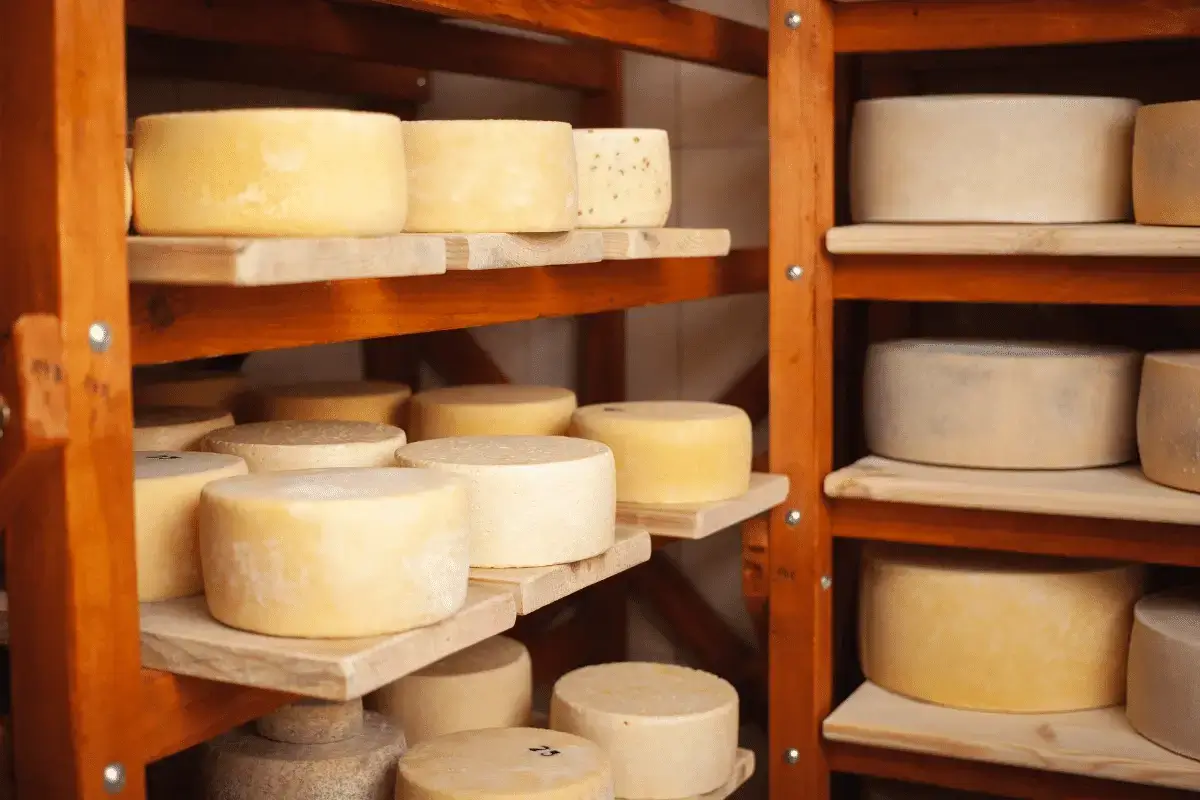
It’s not too different from cheddar cheese, except it has slightly less salt than cheddar. Your child might like it more because it doesn’t taste too strong.
It’s easy to give to your child because you can cut it into thin slices.
It has a lot of vitamins, like vitamin B12, iron, zinc, and calcium, and it also has a lot of protein.
Even though it has many benefits, your child shouldn’t take too much of it, so they don’t get high cholesterol.
6: Mozzarella cheese
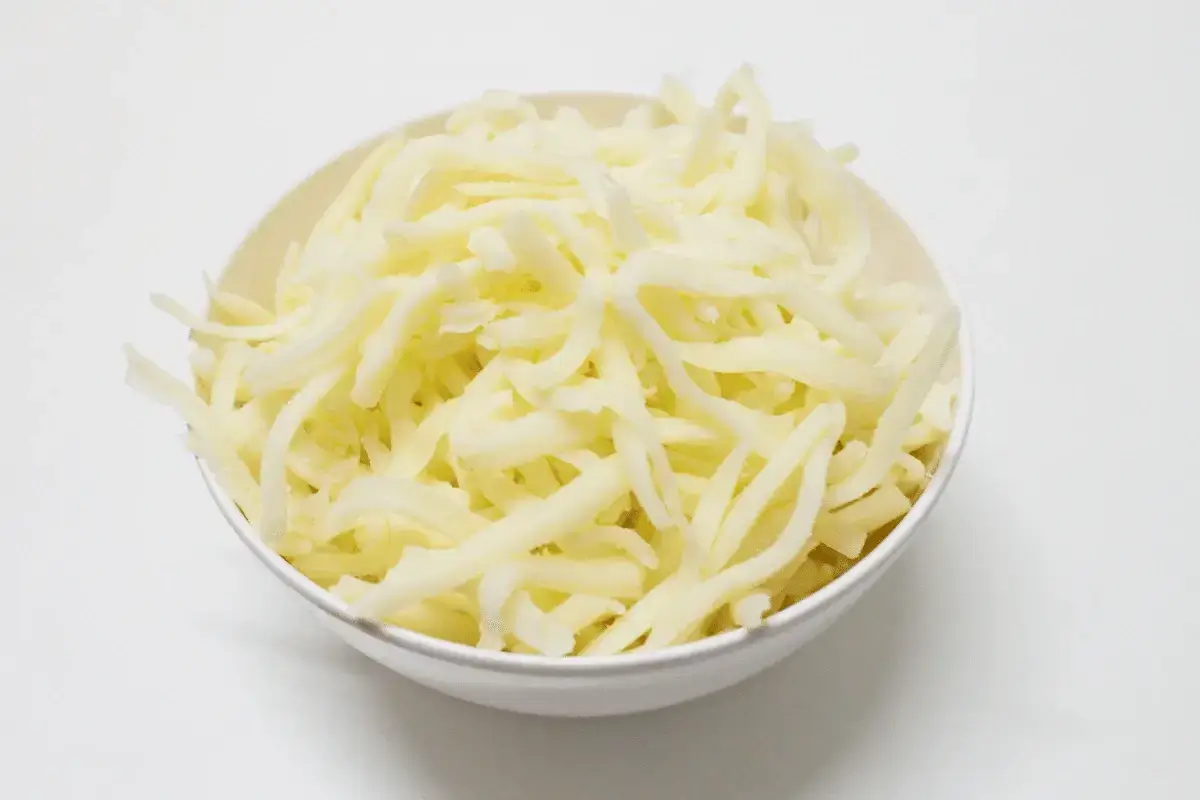
You might be surprised to see mozzarella cheese on a list of the top kinds of cheese for babies, but it has a lot of benefits for your child.
It is good for your baby, just like other kinds of cheese, but it may be hard for your baby to eat, especially if it is thick. So, we suggest melting mozzarella cheese and adding it to vegetables or small pasta to make it easier to chew.
5: Feta cheese
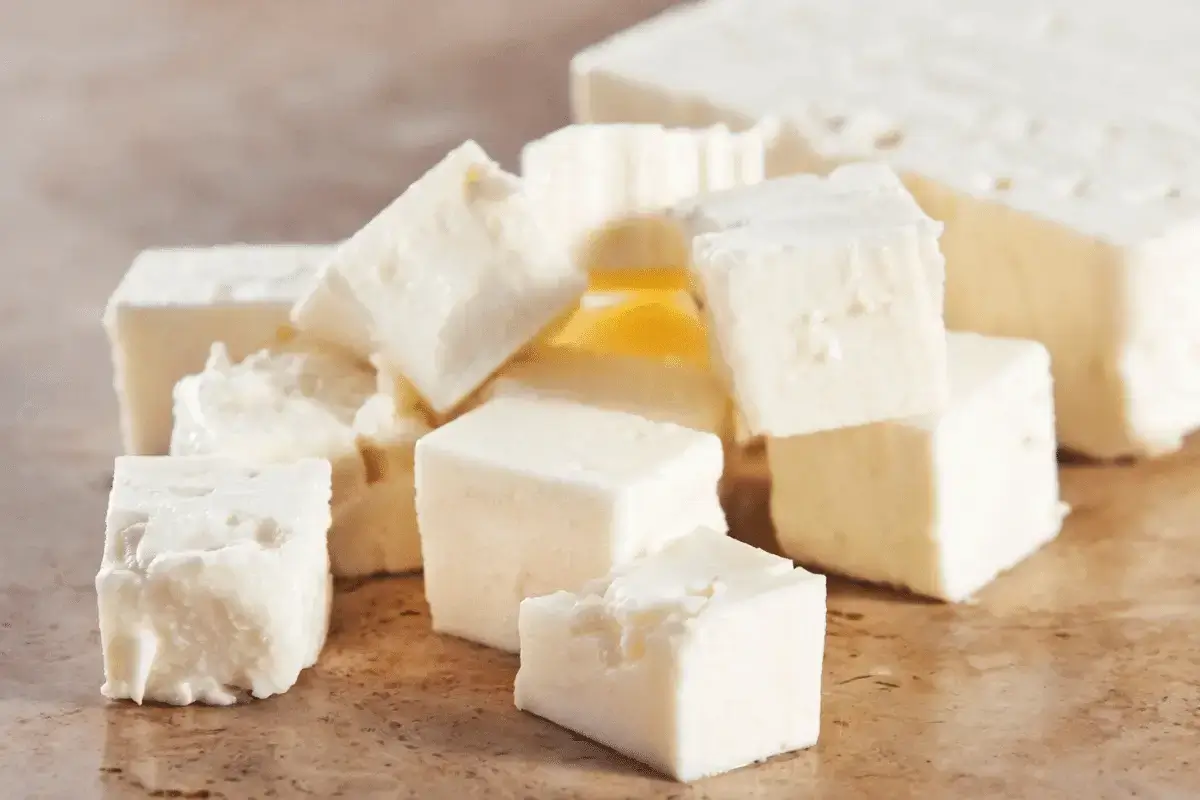
One of the best kinds of cheese for kids because it has only a small amount of salt.
It tastes good, so your child will like it. And it is low in fat and lactose.
4: Ricotta cheese
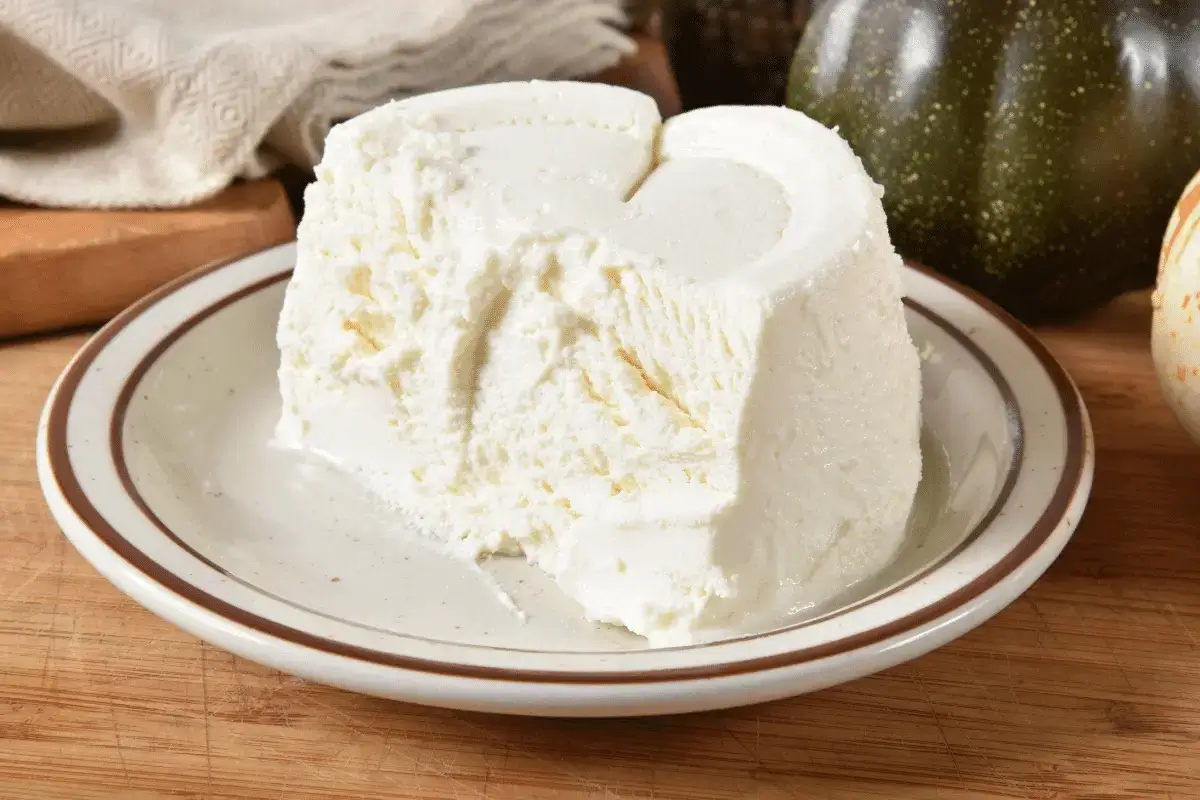
It is thought to be one of the best kinds of cheese for kids because it has a low sodium content. It’s called “whey cheese” because it’s made from the leftover “whey” from making cheese.
It has a lot of vitamin A, one of the most important vitamins for keeping your immune system strong. In addition, it has vitamin B12 and a lot of important minerals.
3: Cream cheese

One kind of cheese that your child will enjoy. It’s easy for kids to chew and swallow, and their mouths don’t hurt when they do.
It is easy to break down because it has only a small amount of protein and a lot of vitamins. And it doesn’t have a lot of fat in it, so the cholesterol level stays the same.
2: Parmesan cheese

If your child can’t handle lactose, Parmesan cheese is the best option. There is a small amount of lactose in Parmesan cheese, which helps with digestion.
Because it has fat and protein, it gives your child the energy he needs to do his daily tasks. In addition to calcium and phosphates, it also has this.
1: Swiss cheese

Your child will like one kind of cheese because it doesn’t have a sharp taste. It has 27 grams of protein per 100 grams of Swiss cheese, which is a lot.
It also contains sodium, calcium, vitamin D, magnesium, and iron. Because of this, it is an important part of your child’s diet.




